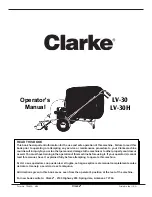
Figure
Holding the power cord by the plug, pull out to the
required length and insert the plug into the mains
socket.
Figure
Switching on and off
●
Press the ON/OFF button in the direction of the
arrow to switch your vacuum cleaner on.
Figure
Controlling the suction level
The suction level can be infinitely adjusted to the level
required by turning the control knob in the direction of
the arrow.
Low power range
=>
For vacuuming delicate materials,e.g.
upholstery, curtains, etc.
Medium power range
=>
For the daily vacuuming of light
dirt deposits.
High power range
=>
For vacuuming durable floor coverings,
hard floors and heavily soiled surfaces.
Vacuuming
!
Please note:
Floor tools are subject to a certain amount of wear,
depending on the type of hard floor you have (e.g.
rough, rustic tiles). Therefore, you must check the
underside of the floor tool at regular intervals. Worn
undersides of floor tools may have sharp edges that
can damage sensitive hard floors, such as parquet or
linoleum. The manufacturer does not accept any
responsibility for damage caused by worn floor tools.
Figure
Set the adjustable floor tool:
Rugs and carpets
=>
Hard floors
=>
If you are vacuuming up relatively large particles, make
sure that you vacuum them up successively and
carefully to ensure that the vacuum channel of the floor
tool does not become blocked. If necessary, you should
raise the nozzle in order to better vacuum up the dirt
particles.
Figure
Vacuuming with accessories
Attach the nozzles to the suction pipe or hand grip as
required:
a)
Crevice nozzle for vacuuming crevices and corners,
etc.
b)
Upholstery nozzle for vacuuming upholstered
furniture, curtains, etc.
c)
Hard-floor nozzle*
- with clip-in edge cleaning bristles:
For gentle but effective cleaning of hard floor
coverings (tiles, parquet, etc.)
- without edge cleaning bristles:
For cleaning dirt in gaps and cracks
●
The edge cleaning bristles can be removed by
pushing the two catches in the direction of the
arrows.
7
8
9
10
11*
Drill dust nozzle
Figure
a)
Secure the drill dust nozzle to the handle and then
place against the wall, so that the nozzle drill hole
opening sits directly over the hole to be drilled.
b)
Select the lowest power setting and then switch on
the vacuum cleaner.
Suction holds the drill dust nozzle in the required
position.
c)
Depending on the surface of the wall to be drilled it
may be necessary to readjust the power to a higher
setting to ensure the drill dust nozzle is firmly
attached.
Any fine particles are automatically vacuumed up.
Figure
You can use the parking aid on the back of the vacuum
cleaner if you wish to stop vacuuming for a short time.
●
Once you have switched off the appliance, slide the
hook on the floor tool into the recess on the rear of
the appliance.
Figure
To overcome obstacles, e.g. steps, the appliance can
also be carried by the handle on the appliance body.
When the work is done
Figure
a)
Pull out the mains plug.
b)
Briefly pull on the power cord and then release it (the
power cord retracts automatically).
Figure
To store/transport the appliance, you can use the
storage aid on the underside of the appliance.
a)
Stand the appliance upright on its end.
b)
Slide the hook on the floor tool into the recess on the
underside of the appliance.
Changing the filter
!
Please note:
Always switch off the appliance before
changing the filter.
Replacing the dust bag
Figure
Appliances with filter replacement indicator:
●
If the filter replacement indicator in the lid is filled
completely when the floor tool is lifted from the floor
with the highest suction level selected, the dust bag
must be changed, even though it may not yet be full.
Even if the dust bag is not full, it may still need to be
changed due to the type of dust that has been
vacuumed. First check that the nozzle, suction pipe
and flexible hose are not blocked, as this would also
lead to the filter replacement indicator being
triggered.
●
The handle can easily be detached from the hose to
remove blockages.
13
14
15
16
17
12*
*depending on model
















































